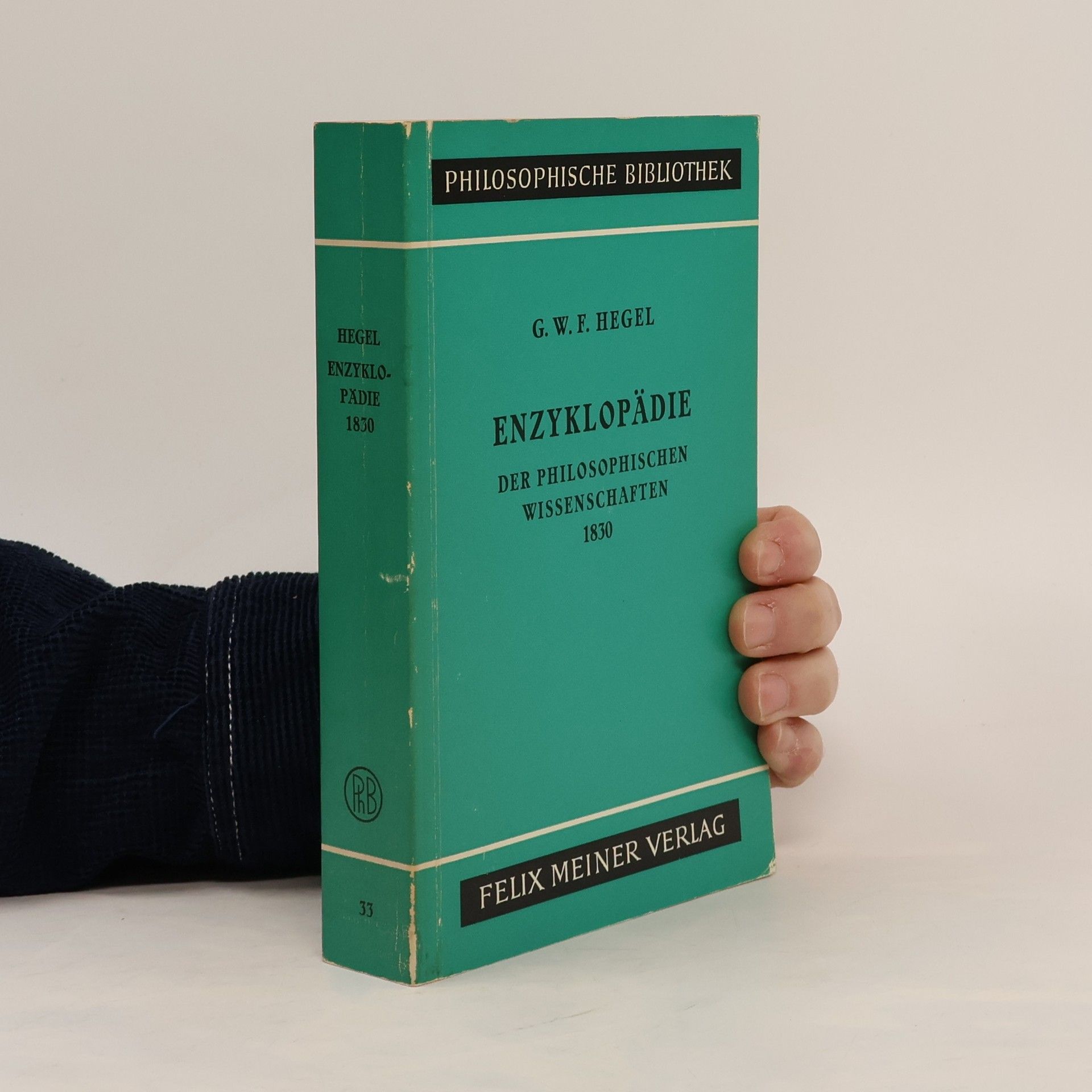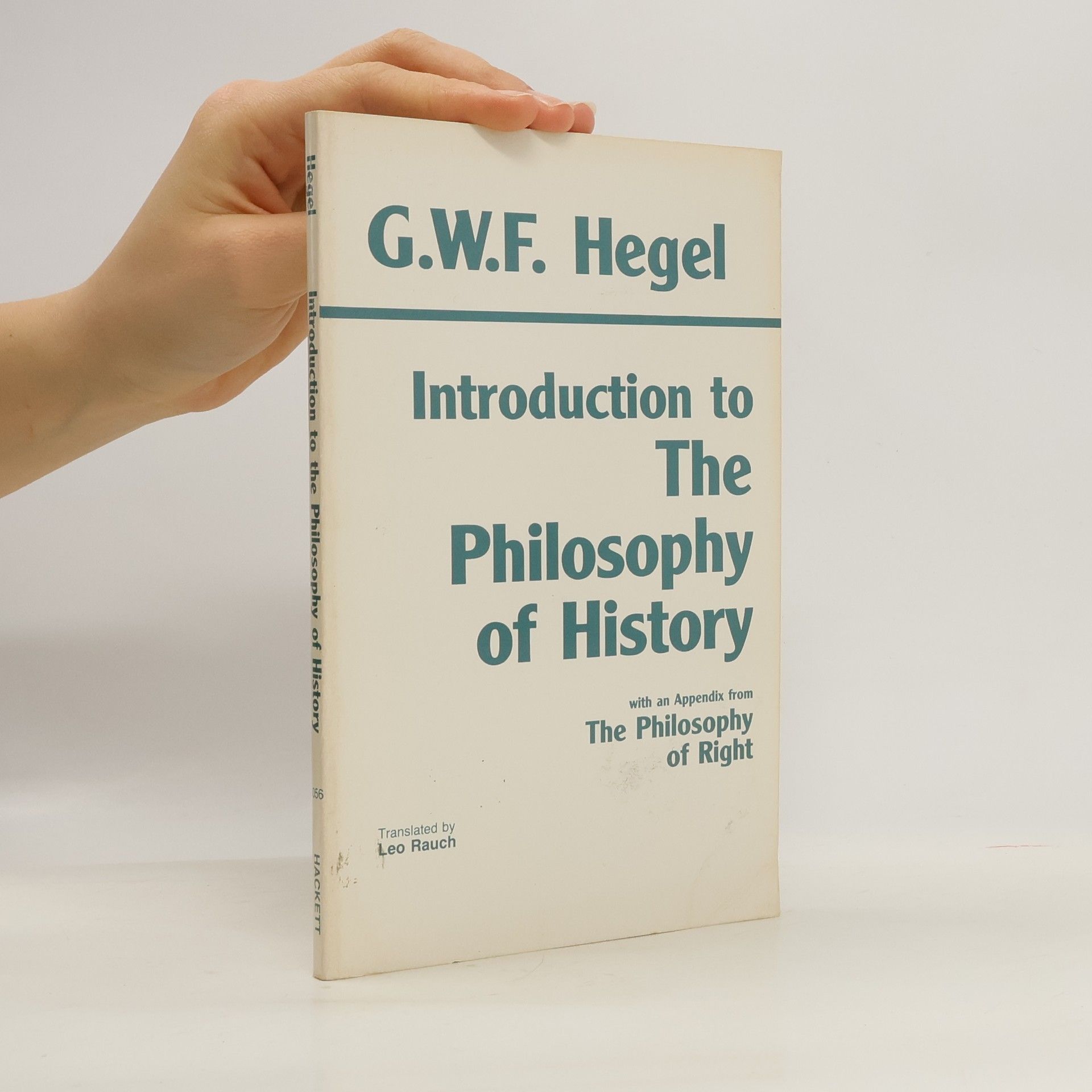This new translation of The Science of Logic (also known as 'Greater Logic') includes the revised Book I (1832), Book II (1813), and Book III (1816). Recent research has given us a detailed picture of the process that led Hegel to his final conception of the System and of the place of the Logic within it. We now understand how and why Hegel distanced himself from Schelling, how radical this break with his early mentor was, and to what extent it entailed a return (but with a difference) to Fichte and Kant. In the introduction to the volume, George di Giovanni presents in synoptic form the results of recent scholarship on the subject, and, while recognizing the fault lines in Hegel's System that allow opposite interpretations, argues that the Logic marks the end of classical metaphysics. The translation is accompanied by a full apparatus of historical and explanatory notes.
Hegel G. W. F. Libros




El maestro Wenceslao Roces, traductor de esta obra, asegura que: "El renacimiento actual de la filosofía hegeliana en el mundo entero está determinado, en lo profundo, por la necesidad de encontrar una filosofía que responda a los grandes cambios de nuestro tiempo, que oriente certeramente ante los problemas complicados de hoy. Lo vital, lo permanente de la filosofía hegeliana es, a mi modo de ver, colocar en el centro del pensamiento el fenómeno mismo del cambio, del desarrollo, de la transformación, que hace del proceso del desarrollo la sustancia del filosofar. De dónde venga el impulso para los cambios es otro problema, ciertamente medular. Pero, desde Hegel, la concepción dialéctica de la filosofía es como una roca inconmovible. Las ideas plasmadas, fijas, no tienen cabida aquí. La conciencia se halla en movimiento constante y la sucesión viva y dramática de sus configuraciones es el argumento de la Fenomenología".
Introduction to the Philosophy of History
- 106 páginas
- 4 horas de lectura
Provides a solution to the problem of how to introduce students to Hegel in a survey course in the history of Western philosophy.